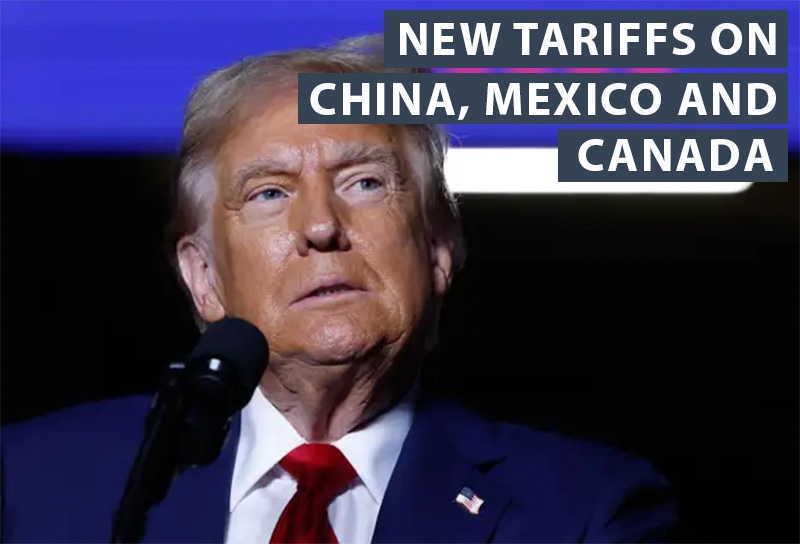Donald Trump has announced plans to impose significant tariffs on China, Mexico, and Canada on his first day as president, a move aimed at better combating illegal immigration and drug smuggling into the US.

Donald Trump has announced plans to impose significant tariffs on China, Mexico, and Canada on his first day as president. The move aims to pressurise the countries into better combating illegal immigration and drug smuggling into the US.
Trump stated he would sign an executive order implementing a 25% tariff on goods from Mexico and Canada and an additional 10% tariff on Chinese imports. He claims the tariffs will remain until Mexico and Canada tackle drug trafficking, particularly fentanyl, and illegal border crossings.
The proposed measures could escalate tensions with the US’s top trading partners, potentially disrupting global supply chains and raising costs for American consumers, while the tariffs appear to break the terms of the US-Mexico-Canada Agreement (USMCA) on trade. Combined, the three nations account for around 40% of US imports, valued at $3.2 trillion annually.
China has denied accusations of facilitating fentanyl smuggling and warned against trade wars, asserting that economic cooperation benefits both nations. A Chinese embassy spokesperson stated, “No one will win a trade war or a tariff war.”
Mexico has responded by emphasising its strong trade ties with the US under the USMCA, which was signed during Trump’s first term and enforces largely duty-free trade between the three countries.
Canadian Prime Minister Justin Trudeau is believed to have raised the tariff issue with Trump, with sources describing the exchange as a “good discussion.” Ontario Premier Doug Ford called the proposal “devastating” to jobs in both nations, while Mexican Senator Gerardo Fernández questioned imposing counter-tariffs on US goods in retaliation.
Trump defended the plan on his Truth Social platform, arguing it was time for neighbouring countries to pay a “very big price” for unresolved issues. He also accused China of failing to enforce promises to punish fentanyl traffickers.
During his campaign, Trump advocated aggressive tariffs as part of his economic strategy, viewing them as tools to boost the US economy and protect jobs. Economists, however, argue tariffs act as taxes on domestic importers and burden consumers with higher costs.
Trump’s stated desire for additional tariffs comes as China faces mounting economic challenges, including a property crisis and rising debt, making it potentially more vulnerable to trade actions.
Discover more up-to-date news from the world of finance on our dedicated Industry News section.






